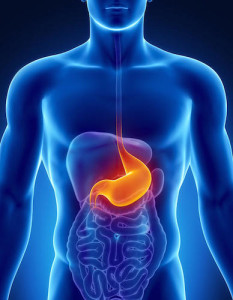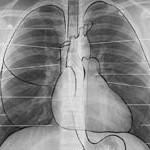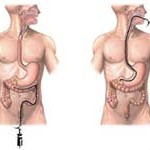Gastrointestinal diseases refer to diseases involving the gastrointestinal tract, namely the esophagus, stomach, small intestine, large intestine and rectum, and the accessory organs of digestions, the liver, gallbladder, and pancreas.
Esophageal Disease
The most common problem with the esophagus is gastroesophageal reflux disease (GERD). It happens when a band of muscle at the end of your esophagus does not close properly. This allows stomach contents to leak back, or reflux, into the esophagus and irritate it. Over time, GERD can cause damage to the esophagus. Other problems include heartburn and cancer. Many people experience a burning sensation in their chest occasionally, caused by stomach acids refluxing into the esophagus, normally called heartburn.

Duodenal/Gastric Ulcer
A peptic ulcer is an open sore. They are usually found in the lining of the stomach, esophagus, or upper small intestine. Ulcers that occur in the stomach are called gastric ulcers. Ulcers that occur in the upper area of the small intestine, which is called the duodenum, are called duodenal ulcers. People once believed that stress and spicy foods were the main causes of these ulcers. Now, research has shown they usually are caused by a bacterium known as H. pylori. How this bacteria spreads remains unclear. Some believe it is spread by close contact such as kissing or even through food and water (Mayo Clinic, 2013). Naturally occurring stomach acids may also bring on peptic ulcers. Repeated use of aspirin or other over-the-counter nonsteroidal anti-inflammatory drugs (NSAIDs) may also cause these ulcers.


 Barium Swallow (X-Ray)
Barium Swallow (X-Ray) Chest X-Ray
Chest X-Ray Endoscopy
Endoscopy Lab Tests
Lab Tests Nuclear Imaging
Nuclear Imaging